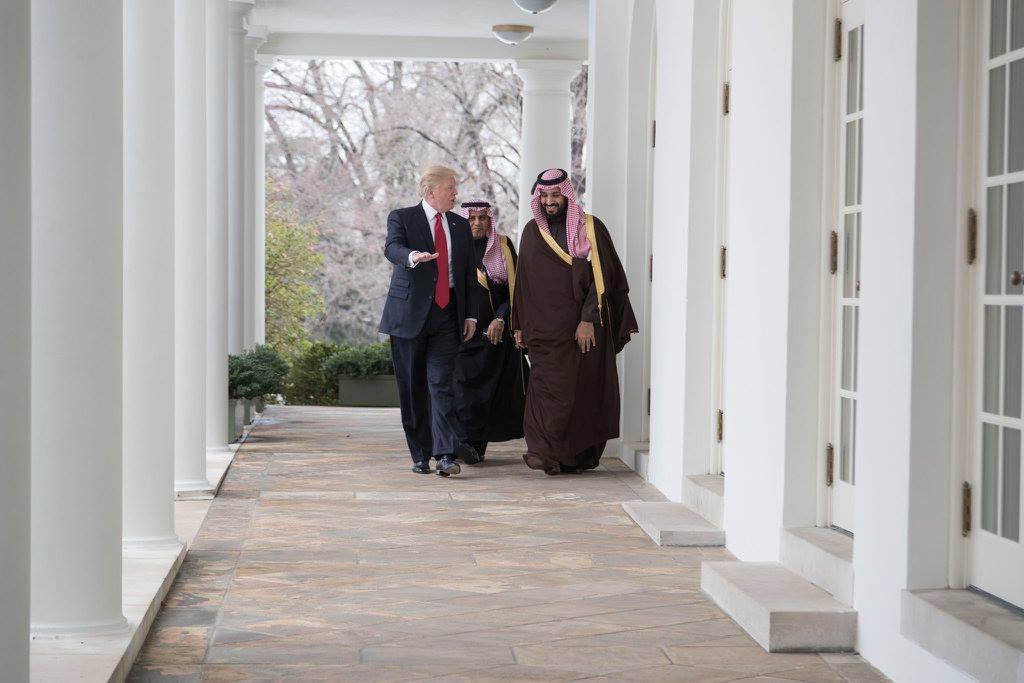 Photo Courtesy: The White House on Facebook
Photo Courtesy: The White House on Facebook
New Developments in Saudi Arabia’s Pursuit of Nuclear Power
Saudi Arabia is getting closer and closer to having its own nuclear power. On March 28th, Energy Secretary Rick Perry confirmed the US approved the Part 810 authorizations for the export of nuclear technology to the Kingdom of Saudi Arabia.
In the last couple of years, Saudi Arabia has been open about its intention to build its own nuclear reactors. Saudi Arabia is the main electricity producer and consumer among the Gulf States – and the Kingdom’s intention to turn to nuclear energy would both reduce emissions and allow greater exports of oil. However, because of the geopolitical importance of nuclear power and the nuclear weapons that can be built from a nuclear power program, it is important for this to happen in full compliance of the existing regulations on nuclear cooperation.
In the past year, the US has been trying to negotiate a deal which would allow the Kingdom to build nuclear power plants, while maintaining strong standards to counter weapons proliferation. These “123 Agreements” – named after Section 123 of the Atomic Energy Act – are meant to control exports of sensitive nuclear technology. The US and Saudi Arabia have not yet been able to successfully negotiate a 123 agreement.
Due to the lack of a 123 agreement, Saudi Arabia is technically still considered a country with whom a potential transfer of technology from the US could be dangerous to the American interests. A Part 810 authorization therefore represents an attempt to try and discuss the terms of a possible exchange of information and, if successful, this attempt could lead to an actual agreement.
Last month press reports revealed that the Trump administration has been issuing authorizations to American nuclear energy companies interested in selling to Saudi Arabia since November 2017, allowing them to engage in commercial dialogues on nuclear technology with the Kingdom.
Because it’s likely the other states bidding for Saudi Arabia’s nuclear trade wouldn’t pay much attention to security standards, the Trump administration is insisting it’d be better, from an international security perspective, if the Kingdom purchased American-designed products rather than any other country’s.
Following Saudi Crown Prince Mohammed bin Salman’s recent visit to Islamabad, which concluded in a series of bilateral investment deals, experts started to fear that Saudi Arabia might resort to its strong connection with Pakistan to develop a nuclear weapon program. Even Israel has expressed concerns about the possibility of a potential Saudi-Pakistani exchange of nuclear information and capabilities.
Several Senators and Representatives, including Brad Sherman, Marco Rubio, and Rand Paul, voiced their concerns about the US’ sharing of nuclear information with the Kingdom, and urged the Trump administration to negotiate a 123 agreement. They also asked the administration to disclose the names of the companies that obtained the 810 approvals, as well as the content of the authorizations.
At this stage, the US hasn’t yet agreed to any deal, neither has Saudi Arabia attempted to proceed in the construction of nuclear power plants without the necessary legal approval. In order to guarantee a sustainable business relationship honoring a commitment to nuclear non-proliferation, it is important to make sure both countries continue their transaction in compliance with the Atomic Energy Act.
Nuclear cooperation for an increased use of clean, safe nuclear power should always be welcomed and encouraged by the US. The only way this can happen, though, is by first ensuring an increment in nuclear energy isn’t followed by a threat of nuclear weapons proliferation.





